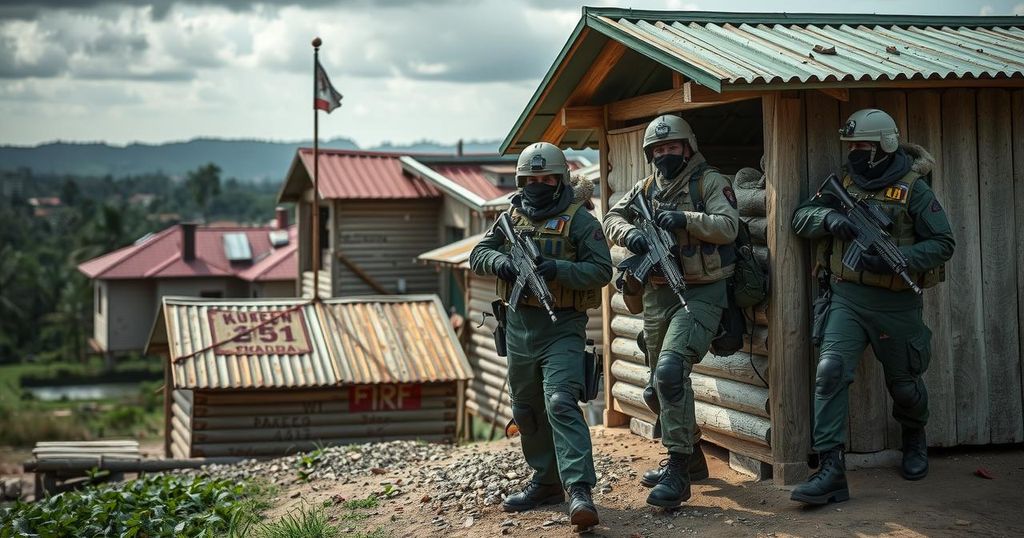Foreign Mercenaries in the DRC: A Complex Defense of Goma Against M23 Rebels

Colonel Romuald leads a team from Agemira in Goma, aiding the Congolese military against M23 rebels backed by Rwanda. Concern over wage disparities between foreign contractors and local soldiers affects morale. Despite their claims of fighting for a noble cause, the military effectiveness of foreign mercenaries in this conflict is debatable, with ongoing fighting underscoring the need for resolution in the DRC’s turbulent landscape.
Colonel Romuald, a seasoned military veteran with a distinguished 36-year career in the French army, currently leads a 20-member team at the Bulgarian private security firm, Agemira, in eastern Democratic Republic of Congo (DRC). Tasked with advising the Congolese army against the M23 rebel group, which has reemerged and gained significant territory in North Kivu province supported by Rwanda, Agemira not only aids in military operations but also provides logistical support including aircraft and drone maintenance.
The hiring of Agemira by the Congolese government, initiated two years prior, reflects a broader strategy that also includes collaboration with the Romanian military company, Romanii care au activat in legiunea franceza (RALF). RALF, comprising around 800 fighters, many alumni of the French Foreign Legion, secures defensive positions around Goma and Sake. Colonel Romuald perceives the conflict as a violation of international law, alleging that Rwanda illegally exploits the DRC’s resources and contributes to the humanitarian crisis marked by mass displacement.
Despite optimistic declarations of a resolution by the end of 2024, ongoing skirmishes challenge this outlook. The dynamics on the battlefield favor the better-disciplined Rwandan forces, compounded by logistical and financial inefficiencies within the Congolese military, leading to discontent among foreign mercenaries due to delayed salaries. The disparity in remuneration between foreign contractors—earning significantly more than local soldiers—has raised concerns about equity and resentment within the armed forces.
Colonel Romuald insists that the team’s commitment is not purely financial; rather, it is portrayed as a noble endeavor. In a controversial stance, he contends they are off the mercenary label by complying with legal frameworks in Europe, underscoring that engagement and combat involvement are limited. Meanwhile, human rights organizations note that while Agemira’s conduct remains scrutinized, there have been no reports of egregious violations linked to their activities, contrasting sharply with notorious private military companies operating elsewhere.
The Democratic Republic of Congo has long been plagued by conflict, particularly in the resource-rich eastern provinces, where various armed groups, including the M23, have operated with alleged support from neighboring countries. The M23’s resurgence in recent years has prompted the Congolese government to seek the assistance of foreign private military contractors to bolster its military capabilities. These contractors, while providing tactical advice and operational support, face scrutiny over their roles, potential profit motives, and the impact on local military dynamics. This backdrop of complex military engagements and the interplay of local and foreign forces underscores the ongoing challenges of governance, security, and humanitarian issues in the region.
The situation in Goma highlights the intricate and multifaceted nature of modern conflicts, characterized by the involvement of foreign mercenaries and private military companies. While Colonel Romuald and his team at Agemira aim to provide stability and counsel to the Congolese military, persistent challenges, including disparities in treatment and remuneration between local and foreign soldiers, continue to foster tension. As military engagements evolve amidst diplomatic failures, the quest for lasting peace and effective governance in the DRC remains a critical and complex undertaking.
Original Source: www.dw.com








